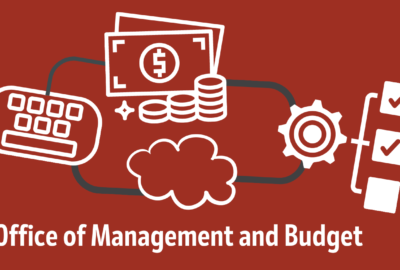The Biden administration is directing agencies to make evidence-based decisions a commonplace practice in their annual budget requests and in how they evaluate the success of agency programs.
The Office of Management and Budget, in a memo last week, gave agencies a first look at the administration’s priorities in implementing the Foundations for Evidence-Based Policymaking Act that Congress passed in 2019.
OMB in the memo directs agencies to complete a four-year strategic plan, along with a draft learning agenda before the end of the fiscal year.
Former federal statistical officials say the memo provides detailed direction for agencies in navigating a major culture change — one that predates the past two years under the Evidence Act.
Data Foundation President Nick Hart said Wednesday that the administration has demonstrated a strong commitment to evidence-building by linking it to critical agency functions, such as human resources and budgeting.
“The administration isn’t beating around the bush — evaluation matters. It matters to government today, it matters for society, they’ve outlined it as a critical function of government,” Hart said at a webinar hosted by the Data Foundation and the American Evaluation Association.
Ruth Neild, the former commissioner of the Education Department’s Institute of Education Sciences, now a senior fellow with the company Mathematica, said OMB in the memo makes clear evidence-building is “need to have, not just nice to have.”
With the memo calling on agencies to simultaneously work on drafting their four-year strategic plans and their learning agendas, Neild said OMB is making agencies’ evidence-building an integral part of meeting their mission goals.
“When evidence-building and evaluation are really integral to the work of the agency, then It means that evidence is everyone’s business. It’s not just the business of the evaluation team over there in that other office,” Neild said.
Melissa Chiu, former director of analytics at the Office of Data Governance and Analytics in the Department of Veterans Affairs and former data and evaluation outreach manager for the Census Bureau’s Center for Administrative Records Research and Applications (CARRA), applauded the steps OMB is taking to get agencies to “start thinking critically about how to build evidence at the very beginning of the evaluation.”
For much of the memo’s goals, Chiu, now the deputy director of the Committee on National Statistics at the National Academies of Sciences, Engineering and Medicine, said a longstanding community of officials from statistical agencies could help other agencies lay a foundation for data sharing with security and privacy of that data.
“They can be really helpful partners, not just at the top level of trying to figure out what data can I use, but really, they can really bring something to the table,” Chiu said.
Lisa Aponte-Soto, a board member of the American Evaluation Association, said the memo reiterates the Biden administration’s focus on promoting diversity, equity and inclusion, but stressed that three key agency positions identified in the memo — chief data officers, chief evaluation officers and statistical officials — should make stakeholder engagement a critical part of their job qualifications.
“Laying out those criteria in terms of the qualifications for building out the team further with critical people who have the expertise in stakeholder engagement, as well as the equity lens, to round out the team, I think would be incredibly important and valuable,” Aponte-Soto said.
Neild said the Education Department has a well-established culture of evidence-building to inform agency decisions, but the memo gives agencies catching up a “basic framework” of expectations, positions and deliverables to work on.
“The guidance provides an opportunity and some content for a deeper and broader conversation about evidence, wherever that agency is,” Neild said.
Hart said the memo reflects how federal agencies are going through a “metamorphosis,” and an important culture change, to become more evidence-based in the way they set policies.
“The federal government has made an incredible amount of progress when it comes to creating a culture of evidence … and while the Evidence Act is a component of that, truly the civil servants and leaders inside government agencies are the driving force here. So the evidence creates the processes, but the people are the ones that are really making the change,” Hart said.
Copyright
© 2024 Federal News Network. All rights reserved. This website is not intended for users located within the European Economic Area.
